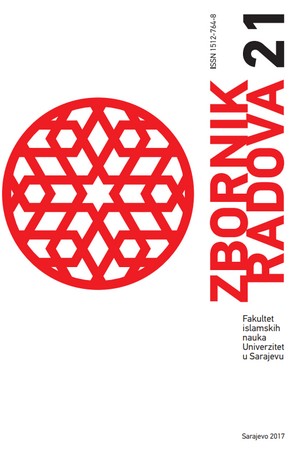PROUČAVANJE ISLAMA U DJELU WILFREDA CANTWELLA SMITHA: OD SOCIJALNE ANALIZE DO FILOZOFIJE RELIGIJE
STUDYING ISLAM IN THE WORK OF WILFRED CANTWELL SMITH: FROM SOCIAL ANALYSIS TO PHILOSOPHY OF RELIGION
Author(s): Samedin KadićSubject(s): Recent History (1900 till today), Islam studies, Philosophy of Religion, Politics and religion, 19th Century, Sociology of Religion
Published by: Fakultet islamskih nauka u Sarajevu
Keywords: Islam; modernity; history; religion; faith; belief; cumulative tradition;
Summary/Abstract: This work reviews the developing approach to Islam in the work of Wilfred Cantwell Smith (1916-2000), a historian of religion and specialist in Islam. In his early work, Smith studied Islam in India from an avowedly Socialist perspective. As his work matured and he found himself researching the position of Muslims under conditions of sweeping modern social change, however, he came to identify the distinguishing feature of that position as their unique concept of a history of Islam for which history was not just a test, but a confirmation of each individual belief. His last and most mature works are remarkable for their anti-essentialist take on religion. During this phase, he advocated dialogue between the great religious traditions, while at the same time distinguishing sharply between the layers of meaning attributed to the term “religion” in contemporary discourse. The first and most important layer is “faith” as personal experience of the sacred, followed by “belief” as intellectual formation of the subjective quality of faith, and finally “cumulative tradition” as the totality of all the material and symbolic elements linked to a given religious tradition.
Journal: Zbornik radova Fakulteta islamskih nauka u Sarajevu
- Issue Year: 2017
- Issue No: 21
- Page Range: 119-148
- Page Count: 30
- Language: Bosnian

